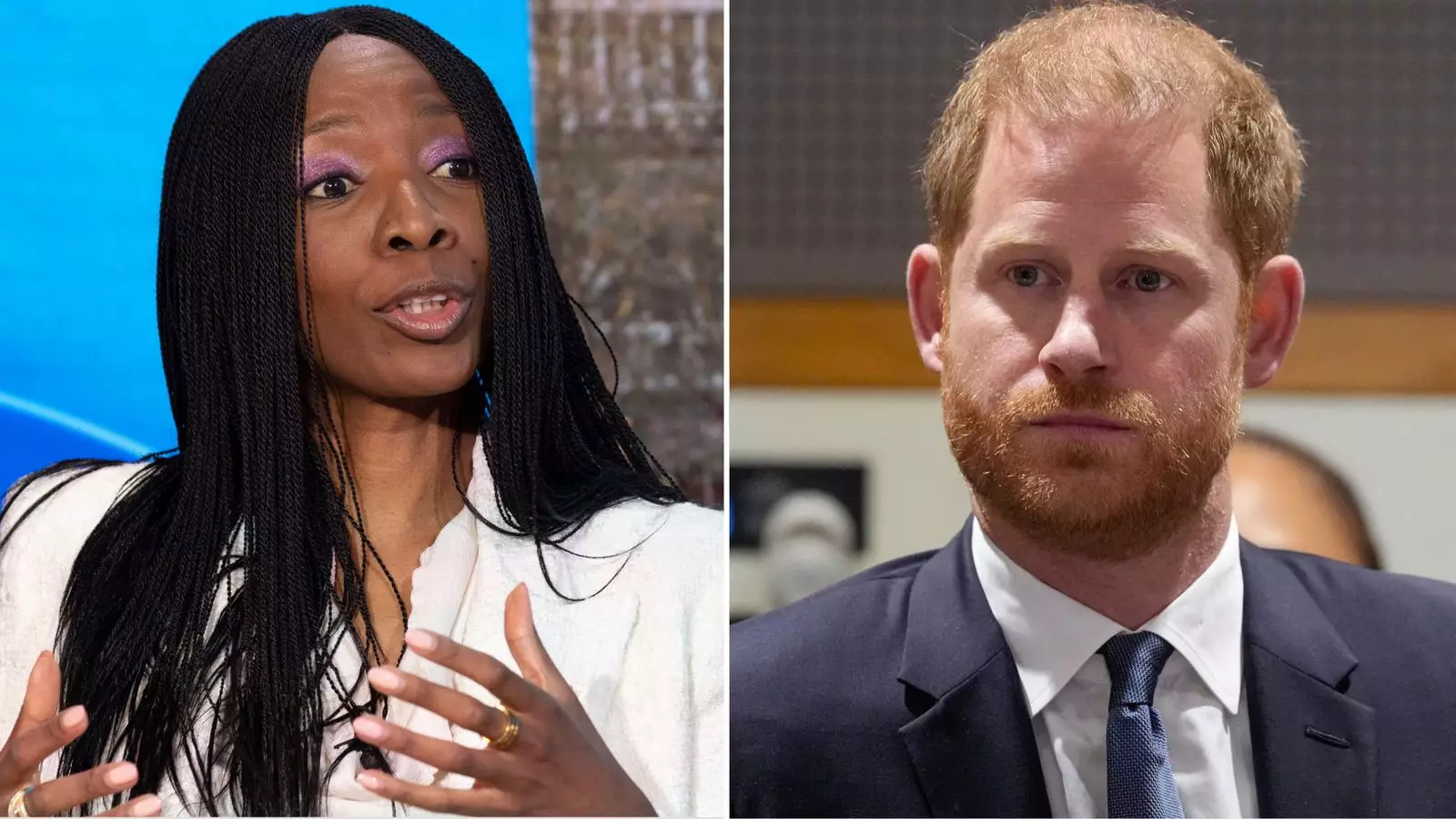In a surprising turn of events, the fallout from Prince Harry’s departure from Sentebale—a charity he co-founded—has highlighted deeper issues within the organization. Dr. Sophie Chandauka, chair of the charity, recently aired grievances that paint a troubling picture. Accusations of “harassment and bullying at scale” primarily directed at Prince Harry have emerged, suggesting a significant malfunction at the heart of what was envisioned as a noble venture to assist children in southern Africa. This dramatic unraveling raises essential questions not just about the sincerity of royal philanthropy, but also about the management practices within charitable organizations led by high-profile figures.
Claims of Bullying: The Power Dynamics at Play
Dr. Chandauka’s accusations pivot around a specific incident which she describes as a significant breach of trust. According to her, Prince Harry engaged in an underhanded public relations maneuver that was damaging not only to her integrity but also to the welfare of the children that Sentebale aims to help. This is more than just a personal quarrel; it reveals the troubling reality where power dynamics come sharply into focus. The claim that Harry deployed his “PR machine” calls to mind the stark disparity in influence that can exist between a royal figurehead and the charitable organization’s operational leadership.
Dr. Chandauka mentioned the harm inflicted on the 540 individuals within the organization, which shifts the narrative from individual attacks to potentially damaging waves affecting a multitude of vulnerable lives. The ambivalence of those initially lauding the charity’s cause, only to find themselves embroiled in what now seems like a power struggle, serves as a cautionary tale about the pitfalls of mismanaging influential foundations.
Backlash and Allegations: A Battle of Narratives
Not surprisingly, all parties involved have countered both claims and counterclaims, putting the charity’s leadership into a tangled web of contradictions. Sources close to Prince Harry have described Dr. Chandauka’s allegations as “completely baseless” and devoid of merit, which only serves to exacerbate an already precarious situation. The complete denial of wrongdoing from Harry’s camp raises an uncomfortable question: what is the truth, and who will remain unscathed in the barrage of conflicting narratives?
Dr. Kelello Lerotholi, a former trustee, unequivocally stated that he had never encountered any such issues during his tenure on the board. This indicates a divide not merely in experiences but perhaps in expectations and interpretations of what constitutes proper governance within the charity sector. A breakdown in communication emerges as a potential root cause, underscoring how easily misunderstandings or, worse, manipulative behaviors can rise to the surface, likely exacerbated by media scrutiny.
The Issue of Manipulation: A Royal Responsibility?
Dr. Chandauka’s statement chastises figures who seem to operate above accountability, evoking an age-old discourse on moral obligation among those with societal privilege. In alleging that Prince Harry has wielded the press as a weapon, she highlights an unsettling duality; the royal family, often seen as champions of goodwill, may not be immune to the frailties and failings that come with immense power. The interplay between victimhood and accountability feels all too relevant when dissecting both royal actions and the expectations placed upon charitable organizations.
At the core of this debacle lies the question: Should individuals of such stature bear a greater moral load? The intersection of philanthropy and privilege can often lead to a distorted sense of accountability, and when things go awry, the rippling effects can be catastrophic. This incident acts as a clarion call, not only demanding transparency from the elite but urging a reevaluation of leadership within charities that are often seen as extensions of their founders’ personas.
The Future of Charity and the Sussex Legacy
As Sentebale grapples with internal strife, one must ponder the broader implications for charitable organizations led by high-profile individuals. How can such organizations maintain their integrity when the figures at the helm may become embroiled in personal dramas that jeopardize their mission? It begs for reform, introspection, and perhaps a necessary distancing of the personal from the philanthropic.
Furthermore, with Prince Harry’s withdrawal, the question arises: What does this mean for the future of Sentebale? Can the organization withstand the fallout and reclaim its vision, or will this scandal become a weighty legacy around the Sussex brand? Only time will tell, but the ruptures in trust and governance remind us that charity does not merely thrive on goodwill; it demands accountability, clarity, and steadfast commitment.

Leave a Reply